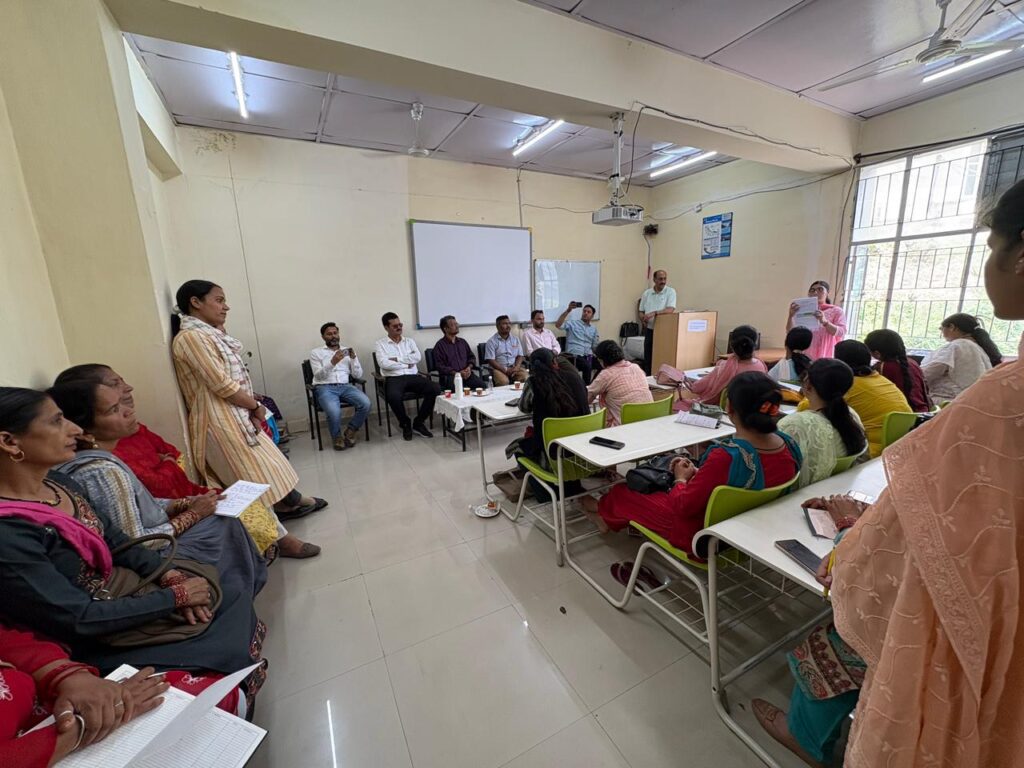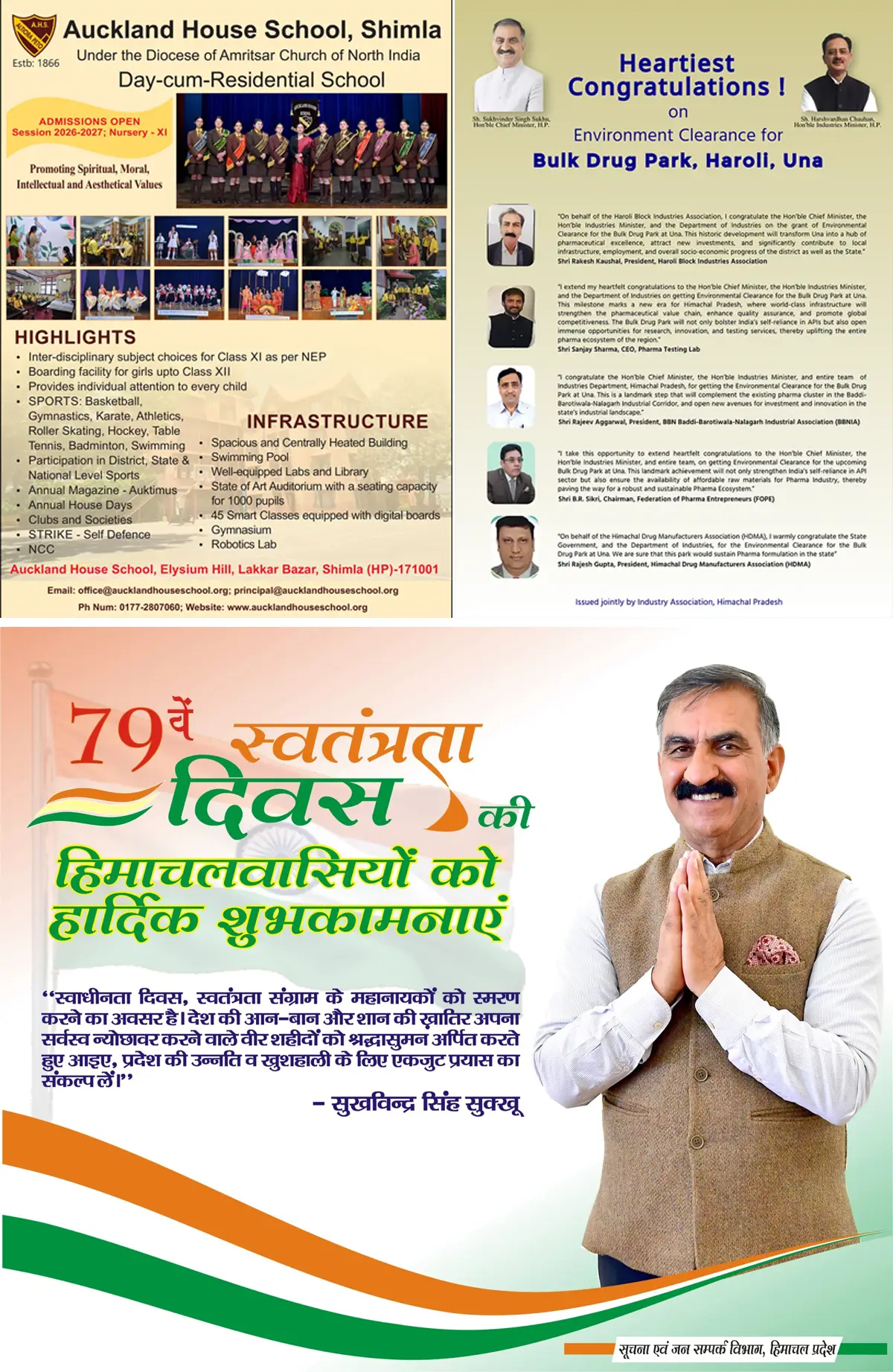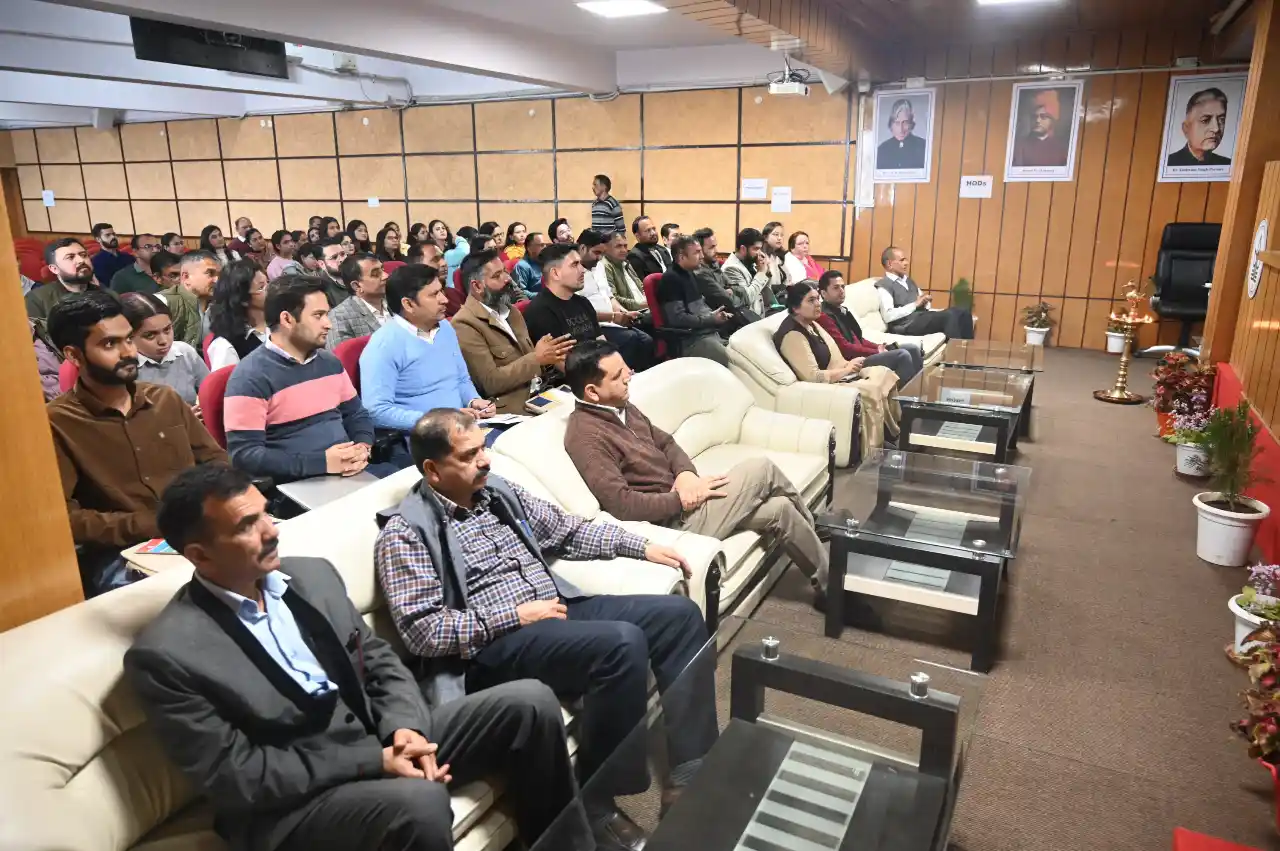Stakeholder Meet Highlights Strategy to Expand Weather-Based Agro-Advisory Services
2 min read
Solan
The Department of Environmental Science at Dr. YS Parmar University of Horticulture and Forestry, Nauni, in collaboration with the State Rural Livelihood Mission (SRLM), Shimla, organized a stakeholder meeting on ‘Enhancement of Dissemination System for Weather-Based Agroadvisory Services among Farmers.’ The meeting brought together key stakeholders from the National Rural Livelihood Mission (NRLM), New Delhi, the India Meteorological Department (IMD), SRLM Shimla, and grassroots representatives, including Krishi Sakhi and Pashu Sakhi members from Solan district. A total of 45 participants, including faculty members from the Department of Environmental Science, took part in the deliberations.
Dr. S.K. Bhardwaj, Head of the Department and meeting coordinator, emphasized the vital role of timely weather-based agro advisories in enhancing crop productivity and building climate resilience. He noted that such advisories could lead to a 20–25% increase in crop yield, and reaffirmed the department’s mission to extend these services to farmers across six key districts using modern ICT tools. Dr. Purnima Mehta highlighted the utility of digital platforms like the Meghdoot App and WhatsApp groups for delivering actionable field-level weather information to farmers.
Dr. Shesha Kumar Goroshi, IMD Scientist, called for strengthened collaboration to build farmer capacities for climate-resilient agriculture, and announced that funding for awareness generation initiatives will be provided shortly to the department to scale its outreach efforts.
Representing SRLM, Kusum advocated for regular training workshops for grassroots workers to ensure last-mile connectivity of advisories. The NRLM team echoed this need and stressed on structured capacity building programs to ensure long-term sustainability and livelihood enhancement for rural communities. This initiative marks a significant step towards bridging the gap between scientific advisories and farm-level decision-making, ultimately contributing to a more resilient and productive agricultural landscape






